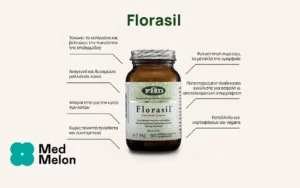Scientific Names of Maitake Mushroom: Grifola frondosa (Fr.) S.F. Gray [Fam. Polyporaceae]
Forms:
Fresh and dried mushrooms (fruiting body and mycelium); standardized extracts containing beta-glucan and other polysaccharides.
Traditional Usage:
– Antioxidant
– Antiviral
– Cellular Regeneration
– Chronic Fatigue Syndrome
– Circulatory Disorders
– Cleansing
– Colds
– Detoxification
– Diabetes
– Energy
– Hepatitis
– High Blood Pressure
– High Cholesterol
– HIV
– Immune Deficiency
– Immune System Health
– Infections
– Insulin Resistance
– Liver Health Maintenance
Overview:
Maitake mushrooms, Grifola frondosa (Fr.) S.F.Gray [Fam. Polyporaceae], also known in America as “hen of the woods” and “dancing mushrooms”, are edible mushrooms valued by the Japanese for centuries for their immune stimulant properties. The active ingredients are polysaccharides, compounds now recognized for helping to strengthen the immune system. Maitake mushrooms are also used medicinally for treating people suffering from abnormal growths, Human Immunodeficiency Virus (HIV), high blood pressure, high cholesterol, hepatitis and other liver diseases. As with shiitake mushrooms, studies suggest that beta-glucan compounds (called D-fraction) in maitake may inhibit tumor growth by stimulating the immune system. Maitake D-Fraction has been reported to exert its antitumor effect in tumor-bearing mice by enhancing the immune system through activation of macrophages, T cells, and natural killer (NK) cells. Recent research has shown that maitake D-Fraction appears to repress cancer progression primarily through stimulation of NK activity. Previous studies have shown that maitake mushroom’s beta 1,6-glucan with beta 1,3-branches, has anti-tumor activity as an oral supplement and acts as an immune stimulant. Animal research also indicates that beta glucans from maitake and other sources may improve the success of bone marrow transplants. One study with rats also showed that Maitake mushrooms may be useful to treat insulin resistance. In preliminary studies conducted in Japan, maitake feedings were shown to lower blood pressure levels in laboratory rats with high blood pressure and lower blood cholesterol levels in rats with high cholesterol. Animal studies suggest that maitake mushrooms have the ability to alter lipid metabolism by inhibiting both the accumulation of liver lipids and the elevation of serum lipids. Maitake mushrooms seem to lower serum total cholesterol level by enhancement of fecal cholesterol excretion. A recent study at New York Medical College also showed that maitake D-fraction destroyed prostate cancer cells in the test-tube.
Active Ingredients:
Maitake mushrooms contain: Polysaccharides including beta 1,6-glucan with beta 1,3-branches, which has anti-tumor activity as an oral agent and acts as an immune stimulant. A novel prolyl aminopeptidase in Grifola frondosa has also recently been identified. The purified enzyme was found to exist as a dimer and had high activity toward L-proline-p-nitroanilide. The enzyme was strongly inhibited by p-chloromercuribenzoic acid and iodoacetic acid and markedly inhibited by phenylmethylsulfonyl fluoride and arphamenin A. [Hiwatashi K, Hori K, Takahashi K, Kagaya A, Inoue S, Sugiyama T, Takahashi S. 2004. Purification and Characterization of a Novel Prolyl Aminopeptidase from Maitake (Grifola frondosa). Biosci Biotechnol Biochem. 2004 Jun; 68(6): 1395-7.]
Suggested Amount:
Maitake mushrooms can be eaten as a food with the recommended dosage of 3 to 4 mushrooms daily. Supplements are typically recommended with a dosage of 3 to 7 grams of dried maitake mushroom per day.
Drug Interactions:
None known.
Contraindications:
None known.
Side Effects:
None known.
References:
Fukushima M, Ohashi T, Fujiwara Y, Sonoyama K, Nakano M. 2001. Cholesterol-lowering effects of maitake (Grifola frondosa) fiber, shiitake (Lentinus edodes) fiber, and enokitake (Flammulina velutipes) fiber in rats. Exp Biol Med (Maywood). 2001 Sep; 226(8): 758-65.
Kodama N, Komuta K, Nanba H. 2003. Effect of Maitake (Grifola frondosa) D-Fraction on the activation of NK cells in cancer patients. J Med Food. 2003 Winter; 6(4): 371-7.
Kubo K, Nanba H. 1996. The effect of maitake mushrooms on liver and serum lipids. Altern Ther Health Med. 1996 Sep; 2(5): 62-6.
Lin H, She YH, Cassileth BR, Sirotnak F, Cunningham Rundles S. 2004. Maitake beta-glucan MD-fraction enhances bone marrow colony formation and reduces doxorubicin toxicity in vitro. Int Immunopharmacol. 2004 Jan; 4(1): 91-9.
Weil, A. 1995. Spontaneous Healing. How to Discover and Enhance Your Body’s Natural Ability to Maintain and Heal Itself. Publ. In the U.S. by Alfred A. Knopf, Inc. New York and in Canada by Random House of Canada Ltd., Toronto. Pp. 182-183.




